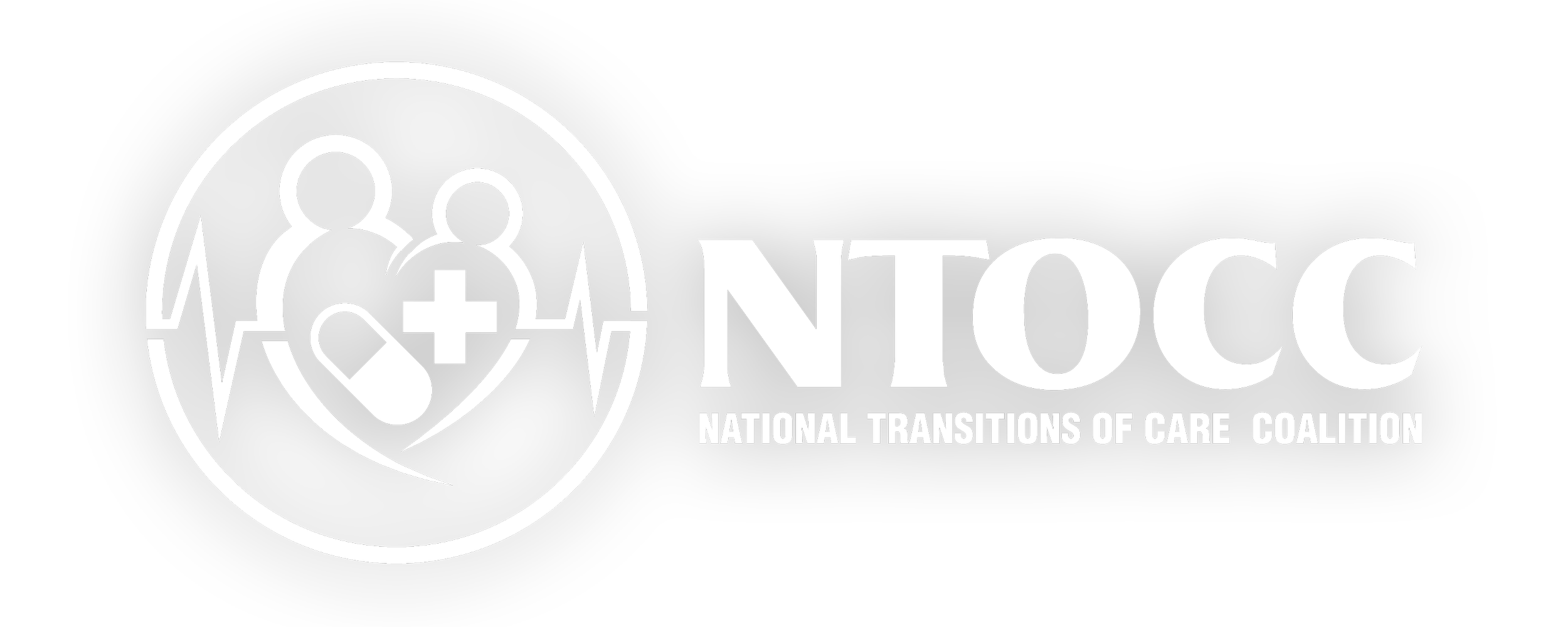Policy Makers
Poor transitions, especially with vulnerable seniors, represent not only a threat to patient safety and decrease consumer confidence in the healthcare system but also waste scarce resources. NTOCC wants policy makers to better understand the significant challenges the healthcare system faces in transitional care. We have banded together to solve this industry problem and want to provide information to decrease break downs in communication and ineffective transitions from one setting to another.
NTOCC seeks to advance patient safety and improve care delivery by creating resources policy makers can use to help them raise awareness of this significant problem and guide them as they shape legislation and policies.
OFFICIAL NTOCC COMMENT LETTERS & RESPONSES
The documents linked below are the official comment letters and responses of the National Transitions of Care Coalition.
Dec 2014 - NTOCC: Comment Letter to Ways and Means on the Hospitals Improvement for Payment Act
June 2014 - NTOCC Comments to House Energy & Commerce Committee on Innovation & Health IT
May 2014 - NTOCC Letter: Medicare Transitional Care Act of 2014
September 2013 - NTOCC Comments: FY14 Physician Fee Schedule
August 2013 - NTOCC Comments: Post-Acute Care System Reforms
August 2013 - NTOCC Letter: Fostering Independence Through Technology (FITT) Act
June 2013 - NTOCC Comments to CMS Regarding FY 2014 Inpatient Prospective Payment System
June 2013 - NTOCC Letter: Improving Access to Medicare Coverage Act
April 2013 - NTOCC Letter: Community-Based Care Transitions Program (CCTP)
August 2012 - NTOCC Letter to Congressman Blumenauer on Medicare Transitional Care Act of 2012
June 2012 - NTOCC Comments to CMS Regarding Prospective Hospital Payment Systems for FY 2013
May 2012 — NTOCC Comments to HHS Regarding Medication Adherence
Mar 2012 — Response to PCORI Draft National Priorities for Research and Research Agenda
February 2012 - NTOCC Letter to US Senate Finance Committee on Delivery System Reform
Oct 2011 — NTOCC Letter to Dr. Clancy on AHRQ Communication Campaign
Aug 2011 — NTOCC Comments: CY 2012 Physician Fee Schedule Proposed Rule
Jun 2011 — NTOCC Comments: Medicare Shared Savings Program: Accountable Care Organizations
May 2011 — NTOCC Statement for the Senate Health Education and Labor Committee Record
Dec 2010 — NTOCC Letter: Community Based Care Transitions Program
AVAILABLE TOOLS & RESOURCES
NTOCC wants policy makers to have information about Transitions of Care and the impact poor transitions have on patients. You can also see some of the tools NTOCC has developed through a consensus and collaboration process involving a variety of industry stakeholders.
Join NTOCC as an individual subscriber or ask for your company to join as an Associate Member to be notified as new tools become available.
NTOCC UPDATED CARE TRANSITION BUNDLE 2022
In 2022 NTOCC Made significant changes to the Care transitions Bundle 7 Elements to successful transitions of care. You can downlad the bundle and definitions below.
NTOCC Care Transition Bundle 2022
NTOCC Care Transition Bundle Definitions 2022
PHARMACY TOOLS
“KNOW YOUR PHARMACIST”
In 2022 the Transitions of Care Pharmacists Advisory Committee released its Transitions of Care Pharmacists 10 Principles. The interaction with the NTOCC community showed that many healthcare professionals were not aware of the significant role and scope of practice pharmacists have in not only transitions of care but in supporting care coordination. Pharmacists offer an array of services through the implementation of Medication Management Services (MMS). Download the “Know Your Pharmacist” tool here
COVID-19 HEALTH MANAGEMENT
NTOCC is excited to share a new consumer tool and resource. “COVID-19 Health Management”. This resource can assist consumers in talking to their health care professionals about issues and concerns they may have if exposed to or having symptoms related to COVID-19.
Policy Paper
This detailed concept paper outlines steps to be considered by the health care industry and policy makers to improve transition performance.
Issue Briefs: Improving Transitions of Care
This issue brief organizes the findings and considerations of the vision of the National Transitions of Care Coalition.
Policy Considerations
Learn which policy considerations NTOCC believes are important to better transitions of care.
Informational Brochure
This brochure contains easy to understand information about transitions of care that can help you in sharing and discussing this critical health care issue.
Improving Transitions of Care with Health Information Technology
NTOCC believes that for Health Information Technology (HIT) to make a difference in transitions of care, the technology must address several critical steps. The components include standardized processes, good communication, required performance measures, established accountability, and strong care coordination. Without addressing each step, the promise of HIT’s affect on overall transition of care improvement will not be realized.
Because there is little guidance on how to use HIT in ways that specifically improve transitions of care, this paper builds upon NTOCC’s overall recommendations for improving transitions of care and the national agenda as it relates to HIT, and identifies problems and considerations as they relate to NTOCC’s overall goals.
Executive Slide Deck
Download this presentation to learn more about how transitions of care impact care delivery and how NTOCC is working to improve transitions.

